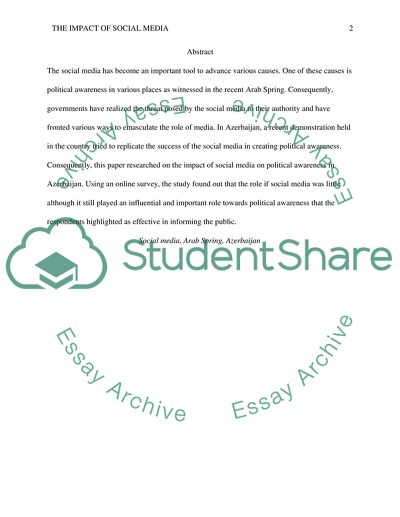Cite this document
(The Impact of Social Media on Political Awareness in Azerbaijan Research Paper, n.d.)
The Impact of Social Media on Political Awareness in Azerbaijan Research Paper. Retrieved from https://studentshare.org/politics/1799334-what-kind-impact-does-social-media-have-on-political-awareness-in-azerbaijan
The Impact of Social Media on Political Awareness in Azerbaijan Research Paper. Retrieved from https://studentshare.org/politics/1799334-what-kind-impact-does-social-media-have-on-political-awareness-in-azerbaijan
(The Impact of Social Media on Political Awareness in Azerbaijan Research Paper)
The Impact of Social Media on Political Awareness in Azerbaijan Research Paper. https://studentshare.org/politics/1799334-what-kind-impact-does-social-media-have-on-political-awareness-in-azerbaijan.
The Impact of Social Media on Political Awareness in Azerbaijan Research Paper. https://studentshare.org/politics/1799334-what-kind-impact-does-social-media-have-on-political-awareness-in-azerbaijan.
“The Impact of Social Media on Political Awareness in Azerbaijan Research Paper”, n.d. https://studentshare.org/politics/1799334-what-kind-impact-does-social-media-have-on-political-awareness-in-azerbaijan.


